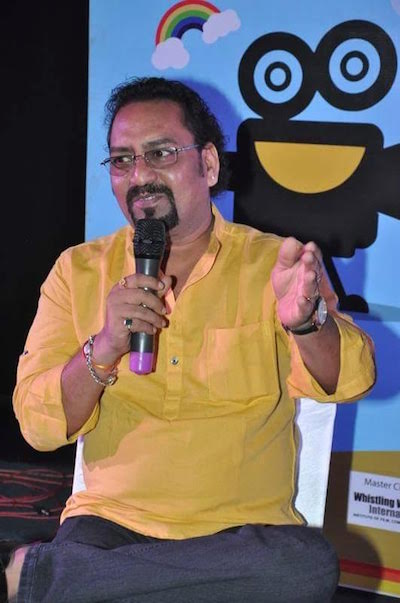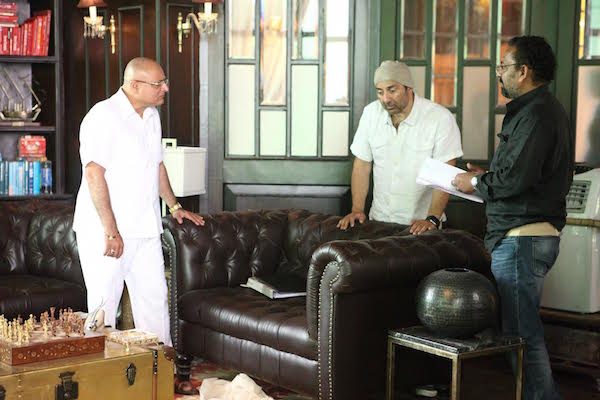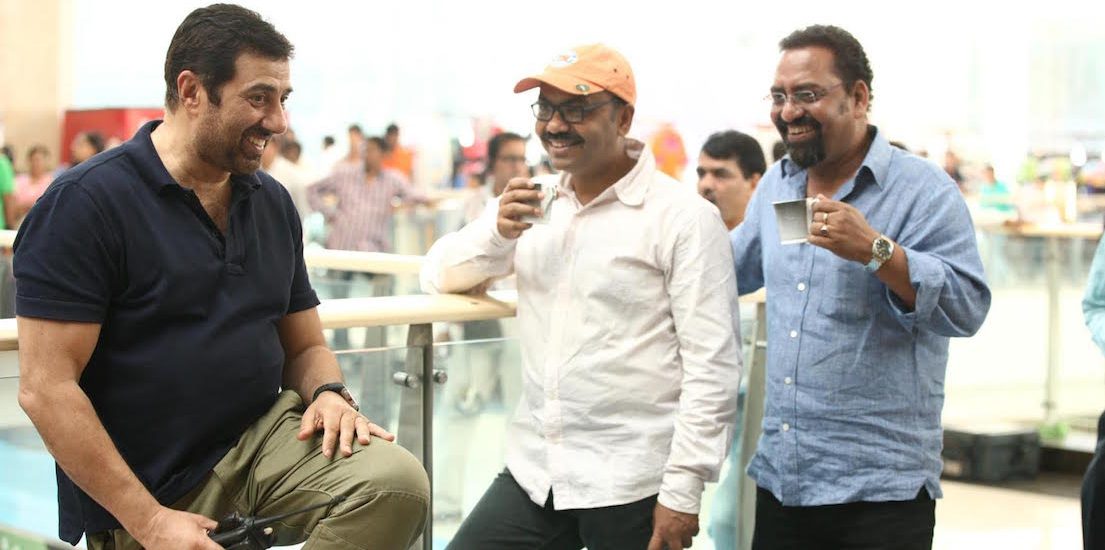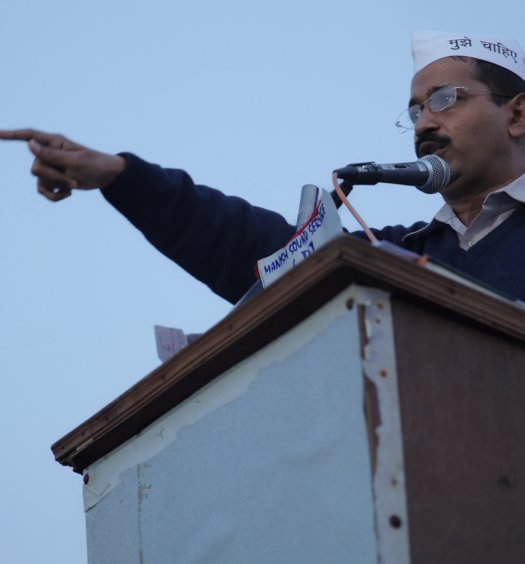“Sunny Deol Is A Very Demanding Director!!” says Sanjay Masoom
Bollywood is so much driven by the stars that barring few Directors, general audience do not know any other contributors in the process of film making. There are many people who has given their lifetime to the industry in top film projects, but their names do not reach to the common man. One such person is Sanjay Masoom. If you research about him, you will be impressed by his illustrious career as a Dialogue Writer. Starting from ‘Zor’ in 1998 to ‘Krrish 3’ in 2014, he has an impressive body of work. In 2016, he is back with ‘Ghayal Once Again’ for which we got to interact with him and know some insights about Dialogue Writing.

Sanjay Masoom
How did you come on board for ‘Ghayal once again’?
My association with Sunny Deol goes back to 1996 when he first gave me a break as a dialogue writer for his film “Zor”. The film was a big hit and I was associated with him for many years. So when he thought of making the sequel of “Ghayal”, he called me back to work with him.
That’s great! So how did your first break with Sunny Deol happen? Please share the learnings from your struggling days.
To be frank, I was blessed to have a straight forward entry in the films. I did not struggle in the real sense of the word. I was a journalist with Times of India group. Then I started working for Nav Bharat Times. Through the film journalism activities, my contacts with film makers got developed. One day, I got to know that Sunny Deol is looking for a dialogue writer and fortunately, he gave me the job.
READ: Ghayal Once Again | Official Trailer
Did you leave your job immediately?
No. I took a lot of time to leave the job and become a full-time dialogue Writer. I did many movies till I felt as an established professional in this field. Once I was confident about that, I pursued it full-time.
When does the process of dialogue writing start? Is it after the completion of the screenplay or with it? What is your approach?
Each project is different and every film maker has a different approach. Like in Krish and Krish 3, Rakesh Roshan ji made sure that I sat in the story and screenplay sessions from the start. That made me completely involved in the film and I could give my inputs from dialogue writing point of view.
Many times, screen play is ready. In that case, I have to live with the screenplay for a long time and get to know the characters completely. Once I know the character by mind and heart, I start writing their dialogues. So the dialogue writer has to be flexible depending on the working style of the film maker.
When you get a screenplay, it must have few dialogues in it. So does that make your job easy? How much time does it takes for you to complete a project?
If the writer has written the screenplay with dialogues, then it is clear that the film maker wants a specialist to do the job. In other cases, where the writers already know that eventually the dialogues will be written by a dialogue writer, they just put in rough dialogues to explain the communication between the characters. In both cases, I have to start from scratch, understand the characters, the era they are set in, their surroundings, the texture of the language used in that surrounding. Once I know this by heart, I get on with writing the dialogues for them. Generally, I need 3-4 months to complete a project. Sometimes it can happen earlier too but totally depends on project to project.
So based on where the story is placed, from where the characters are, do you need to be careful about the dialect of the language and its regional nuances?
Of course. As a dialogue writer, one has to be updated with the changes in language and dialect. I need to be aware of the regional nuances of the language of the character. Many times, I have to research, travel to the place where character belongs, interact with people at that place to learn their dialect. Then only those characters can come alive. Like for Ghayal once again, I had to write the dialogues for the young kids keeping in mind how the urban Mumbai kids speak now a days. It has a mixture of slangs and Hinglish or you can say the Mumbai Lingo.

Ghayal Once Again
‘Ghayal’ is still remembered for its hard hitting dialogues. Did you feel any pressure to recreate the magic?
I was not exactly under pressure because the era when ‘Ghayal’ released was different and current era is different. At that time, delivery of those hard hitting dialogues were a bit over the top and was accepted well. But the current film audience do not accept that kind of dialogues and it’s delivery. I have to adopt the language in which we speak now. Also the characters in this film have changed over time. They are grown up. Much water has passed under the bridge. So even if the aggression is there, the language has to be normal and in tune with today’s generation.
READ: Ghayal showed us how dangerous a society we live in
How involved was Sunny Deol in your work? How was it working with him?
He is very demanding as a Director. Because he is very clear in his mind about what he wants. So until he gets that, he will ask me to work on that portion or dialogue. I know Sunny since a long time. We did a lot of work together. I am always a part of his core team. I know his working style and we are comfortable with each other.
What are your sources of inspiration when it comes to dialogue writing? Or what do you do when you hit a mental block?
For both, the answer is Nature. Nature inspires me. Whenever I need an inspiration to write or get hit by a mental block, I try to go to a nearby place blessed with natural beauty. Once I am in nature, I feel rejuvenated and the words just flow. I also make sure that my writing place is surrounded by plants, flowers, etc.
You have an illustrated career as a dialogue writer and you also did screen writing for many films as well as lyrics for few. Which one do you enjoy the most?
I am basically a lyricist. I started with writing poetries. Whenever I thought of getting into films, I thought I would work as lyricist. But I entered as a dialogue writer, so now writing poetry is my hobby. I do not enjoy it much as a profession. Same way, screenplay is very challenging. It needs many other skills than writing. Now I enjoy dialogue writing the most.
When we see the list of the films you did, they are mainly mainstream Bollywood films. Would you like to write for festival films or independent films?
In my point of view, the films which gets liked by a large number of audience is good cinema. I like to be part of good cinema. Though I am open to do any kind of project, I feel it must be liked by all.
What are your next projects?
There are few in discussion. But I am working for Mohit Suri’s next movie for sure.
-Prashen Kyawal



